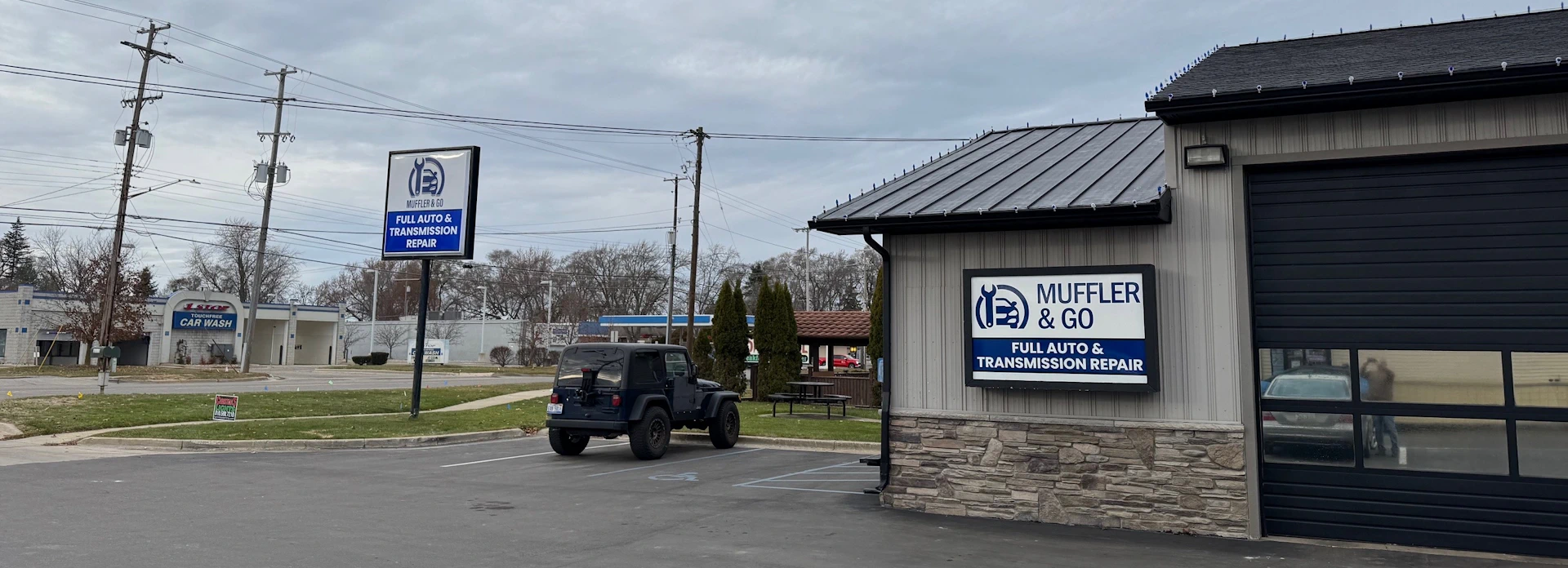
AUTONET TV
Archive for July 2024Emergency! (Vehicle Emergency items)Posted July 28, 2024 4:57 AM"I never expected it could happen to me." Countless drivers have said that after they've had an emergency turn their lives upside down. So before that happens to you, let's thinking about planning ahead for an emergency with a few things you should keep in your vehicle.
Other things like basic tools, a first aid kit, a space blanket and jumper cables are also good ideas. Many service repair facilities offer these items for sale, and you can ask your service advisor for suggestions. While it's fresh in your mind, plan a shopping trip and put together your own emergency kit now. Sure, you can put it off, but you may find yourself stuck in a difficult situation, saying to yourself, "Only if…" Muffler & Go Not Too Hot and Not Too Cold (Temperature Gauge)Posted July 7, 2024 6:24 AMYou know your body temperature is supposed to be 98.6 degrees F, 37 degrees C. Your vehicle has a normal temperature, too, and if you pay attention to it, that can save you some big headaches down the road. Many vehicles have a temperature gauge on the dash that takes the temperature of the engine's coolant. Some have a thermometer symbol, some read C-H (cold to hot). Many will have a red zone that shows when water temperature is getting into the danger zone. Others are digital and have a red warning light that signals overheating. And some vehicles have a light that goes on when the engine temperature is out of the normal range. If your vehicle has a gauge, pay attention to it. If you need help locating it, ask one of our Muffler & Go experts to give you a quick explanation. Chances are when the vehicle has been running for 15 minutes or more, the temperature gauge will settle into its own "normal" zone, often just below the midway point. If you have a digital readout, remember what that "normal" temperature is. Here's why. At any point when you're driving, the temperature gauge is the quickest way to get a sense that the engine is running the way it should, a quick health checkup, as it were. Say you're on a 3-hour trip, glance at that gauge every hour or so. It should always be in the same spot. If it starts to move one way or the other, you may be able to catch a problem before it gets serious. Pay special attention to it moving into the hot zone. The needle on the gauge is the easiest and least distracting way to see an engine heating up, but on a digital gauge, start paying attention if the temperature reaches 240ºF/115ºC or more. Remember, though, that just because the gauge reads "hot" doesn't mean your engine is on the verge of burning up. It could be a bad sensor and the engine will be at a normal temperature. But it also could be a failing water pump, coolant leak or thermostat. By pulling off the road and observing your engine, it will give you a pretty good idea if it's running hot or not. If the gauge is too "cold," it could be a broken gauge or thermostat sticking open. Usually being in the cold range isn't as worrisome, but you should have it checked out since other systems may be affected. Heat is one of a vehicle's worst enemies, especially when it comes from within. Know your vehicle's normal temperature and keep an eye on it.
| ||
SearchArchiveMarch 2019 (18)April 2019 (4) May 2019 (4) June 2019 (5) July 2019 (4) August 2019 (4) September 2019 (5) October 2019 (4) November 2019 (4) December 2019 (5) January 2020 (5) February 2020 (4) March 2020 (5) April 2020 (4) May 2020 (5) June 2020 (4) July 2020 (4) August 2020 (5) September 2020 (4) October 2020 (4) November 2020 (5) December 2020 (4) January 2021 (6) February 2021 (4) March 2021 (4) April 2021 (4) May 2021 (5) June 2021 (4) July 2021 (4) August 2021 (5) September 2021 (4) October 2021 (5) November 2021 (4) December 2021 (4) January 2022 (6) February 2022 (4) March 2022 (4) April 2022 (4) May 2022 (5) June 2022 (4) July 2022 (5) August 2022 (4) September 2022 (4) October 2022 (5) November 2022 (4) December 2022 (4) January 2023 (5) February 2023 (4) March 2023 (4) April 2023 (5) May 2023 (4) June 2023 (4) July 2023 (5) August 2023 (4) September 2023 (4) October 2023 (5) November 2023 (4) December 2023 (5) January 2024 (5) February 2024 (4) March 2024 (5) April 2024 (4) May 2024 (4) June 2024 (5) July 2024 (4) August 2024 (4) September 2024 (5) October 2024 (4) November 2024 (4) December 2024 (5) January 2025 (4) February 2025 (4) March 2025 (5) April 2025 (4) May 2025 (4) June 2025 (5) July 2025 (4) August 2025 (5) September 2025 (4) October 2025 (4) November 2025 (5) December 2025 (4) January 2026 (4) February 2026 (1) | CategoriesTires and Wheels (4)Maintenance (5)Auto Safety (2)Battery Replacement (1)Service Standards (2)Dashboard (1)Battery (7)Alternator (6)What Customers Should Know (55)Fuel Saving Tip: Slow Down (2)Oil Change (2)Automotive News (2)Customer Detective Work (1)Winter Prep (1)Windshield Wipers (2)Fluids (5)Brakes (11)Exhaust (5)Inspection (3)Shocks & Struts (2)Steering (7)Older Vehicles (1)Air Conditioning (5)Drive Train (2)Spark Plugs (1)Winter Tires (1)Tire Rotation and Balancing (3)Fuel System (4)Tires (6)Keys to a long lasting vehicle (1)Fuel Economy (5)Trip Inspection (1)PCV Valve (1)Alignment (4)Timing Belt (2)Transmission (3)Brake Service (3)Differential Service (2)Fuel Pump (1)Check Engine Light (2)Cabin Air Filter (1)Water Pump (2)Headlamps (1)Cooling System (5)Engine Air Filter (1)Safety (2)TPMS (2)Safe Driving (1)Shocks and Struts (1)Suspension (2) | |

OUR REVIEWS


Beth Stark, 01/28/2026Three generations of my family have taken our cars to a Chris and his team. Most recently my daughter’s car in the severe winter weather had all her oil drain from blown valves and it affected her timing on her suv. While not ideal, we knew we wanted it towed to Muffler and Go. We got a call with what was needed to get it running safely with a price. The car was ready when quoted. It runs better than before and we are grateful for the team. The work is always top quality. Prices are fair. And most importantly, they are honest and operate with integrity. Thank you. The Stark Family.








